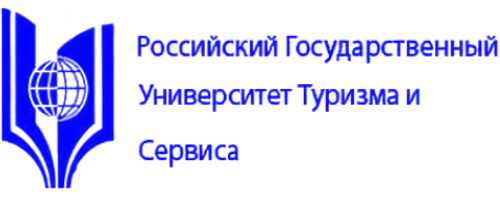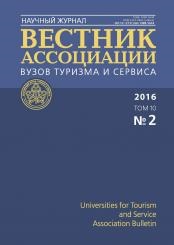Moscow, Russian Federation
The full and comprehensive inclusion of sustainable tourism in Russian tourism studies and thematic plans of disciplines at the present time are particularly important nowadays. Meanwhile we can note very superficial and simplified understanding of the concept of sustainable development in tourism, when they simply proclaim the necessity of taking into account natural, social limitations, and interests of the local economy, but at the same time, the Russian researchers and teachers do not have enough awareness of all the possible refractions of this problem. Passed at the 22nd of September 2016 in RSUTS scientific-practical seminar «Sustainable rural tourism in Russia» was drafted to help resolve the identified problems. Leading international and Russian experts in the field of sustainable tourism development gave the examples of their own researches which demonstrate the breadth and multi-dimensionality of sustainability in tourism. There were presented and illustrated with the method of case studies such topics as 1) the correlation of center and periphery as a factor in the long-term sustainability in tourism; 2) service orientation as a factor of long-term competitiveness of destinations; 3) the problem of finding the optimal balance between state regulation and ethnic autonomy; 4) the interests of local residents and their informing with the positive results of tourism development; 5) factor of liminality in tourist experiences; 6) avoidance of excessive standardization and universalization of tourism products as a factor of competitiveness of peripheral destinations; 7) the concept of touristscapes and taskscapes; 8) optimal route network and reference point for the sustainable development of tourism; 9) the importance of tourism for the depressed rural settlements of Russia; 10) the peculiarities of small businesses processes in rural tourism, 11) entrepreneurship as the factor of increase of stability and competitiveness of the tourism industry under crisis conditions. These and other aspects of sustainable tourism development were the subject of extensive discussion at the scientific-practical seminar, which resulted in a more complete understanding of the paradigm of sustainability in the current realities of the Russian tourism industry. The article presents views, concepts and elements of academic debate, which took place during the seminar from representatives of five countries: Russia, Norway, Australia, Sweden and Iceland. The purpose of this publication consisted in the systematization of the academic content of the reports and scientific messages, and the explanation of how they can contribute to strengthening the concept of sustainable tourism as a comprehensive and productive paradigm in tourism research and education-conceptual approach.
sustainable tourism, responsible tourism, ecotourism, rural tourism, arctic tourism, peripherals, scientific-practical seminar, Ethnic Park
1. Abesadze T.K., Pimenov I.A., Ermakov A.S., Improvment of the effectivness of ski resorts in Moscow Region on the basis of the foreign experience. Servis v Rossii i za rubezhom, 2015, vol. 9, no. 3 (57). (In Russ) DOI:https://doi.org/10.12737/14396.
2. Sturod A.G., Ermakov A.S., Creative methods of teaching students on educational directions «tourism» and «service». Servis v Rossii i za rubezhom, 2015, vol. 9, no. 2 (56). (In Russ) DOI:https://doi.org/10.12737/11897.
3. Shakeela A., Weaver D., Resident reaction to a tourism incident: Mapping a Maldivian Emoscape. Annals of Tourism Research, vol. 39, Issue 3, July 2012, p. 1337-1358.
4. Weaver D., Core-periphery relationships and the sustainability paradox of small island tourism. Tourism Recreation Re- search, Published online 13 September 2016, p. 1-11.
5. Weaver D., Asymmetrical Dialectics of Sustainable Tourism: Toward Enlightened Mass Tourism. Journal of Travel Re- search, March 2014, vol. 53, no. 2, p. 131-140.
6. Pashkevich A., Stjenström O., Making Russian Arctic Accessible for Tourists: Analysis of the Institutional Barriers. Polar Geography, 2014, vol. 37, no. 2, p. 137-156.
7. Andereck K.L., Nyaupane G., Development of a Tourism and Quality-of-Life Instrument, in Book: Quality-of-Life Community Indicators for Parks. Recreation and Tourism Management, 2011, vol. 43 of the series Social Indicators Research Series, p. 95-113.
8. Pashkevich A., Tourism development planning and product development in the context of Russian Arctic territories. Northern and Regional Studies Series, Lakehead University, 2013.
9. Il’kevich S.V., Sakharchuk E.S., Economic aspects of sustainable tourism development in the regions of the Russian Federation. Vestnik Assotsiatsii vuzov turizma i servisa servisa, 2014, no. 2, p. 4-16. (In Russ).
10. Il’kevich S.V., Strömberg P., Aspects of competitiveness of the Nenets and Yamalo-Nenets Autonomous districts as destinations of Arctic tourism. Servis plus, 2016, vol. 10, no. 3, p. 10-17. (In Russ).
11. Sarancha M.A., Mosalev A.I., Experience of development of tourism services in polar regions in foreign countries. Vestnik Assotsiatsii vuzov turizma i servisa, 2015, no. 4, p. 28-38. (In Russ).
12. Kharitonova T.V., Entrepreneurship development as the factor of increase of the tourism industry competitiveness in crisis. Proceedings of the conferences on entrepreneurship and banking law, 2016, p. 118-123. (In Russ).
13. Ermakov A.S., Kondakova T.Yu., Development of caravanning and trailering in depressed rural settlements of the Non- black Soil Zone of Central Russia. Servis v Rossii i za rubezhom, 2014, vol. 8, no. 2 (49), pp. 24-33. (In Russ).
14. Mosalev A.I., The role of the accomodation sector in tourist routes of the Russian Federation. Vestnik Assotsiatsii vuzov turizma i servisa, 2015, vol. 9, no. 2, pp. 14-22. (In Russ).
15. Nordbø I., Beyond the Transfer of Capital? Second-Home Owners as Competence Brokers for Rural Entrepreneurship and Innovation. European Planning Studies, 2014, Vol. 22, Issue 8, p. 1641-1658, DOI:https://doi.org/10.1080/09654313.2013.784608.
16. Danilov A.Yu., P.G. Demidov Yaroslavl State University’s experience of strengthening the practice-oriented approach in the implementation of the bachelor’s and master’s programmes in tourism. Servis v Rossii i za rubezhom, 2016, vol. 10, no. 2 (62), pp. 196-204. (In Russ).





